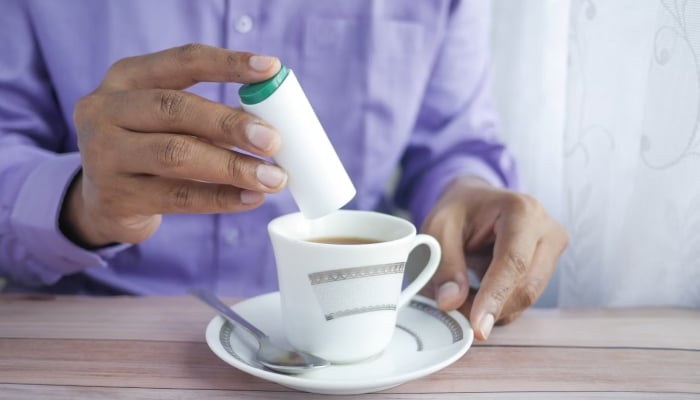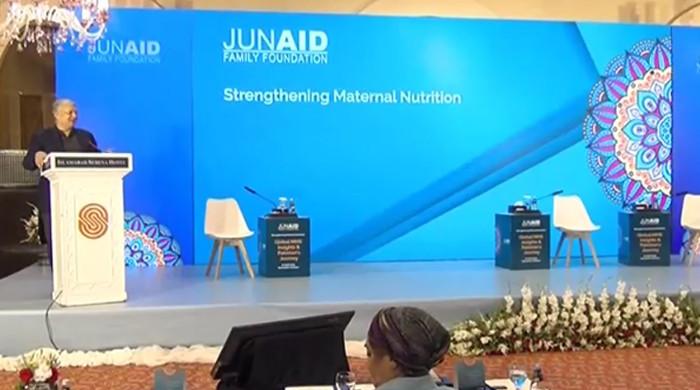Study reveals sucralose in diet drinks increases appetite
Dr Page notes individuals who consumed water sweetened with sucralose reported 20% increase in appetite
April 06, 2025

Mounting evidence has increasingly suggested a connection between diet sodas and other low- or no-calorie edibles and weight gain, leading the World Health Organisation (WHO) to advise against using non-sugar sweeteners for shedding weight.
"Replacing free sugars with non-sugar sweeteners does not help people control their weight for a long term," said Director of WHO’s Department of Nutrition and Food Safety Dr Francesco Branca, then in the advisory.
Now, a fresh piece of research may offer insights into why excessive consumption of the artificial sweetener sucralose might be ineffective. Contrary to the expectation of reduced food intake signals, the study indicates that sucralose, when consumed in a beverage, triggers an increase in appetite, CNN reported.
According to the lead researcher, Dr Katie Page, an associate professor and director of the Diabetes and Obesity Research Institute at the University of Southern California’s Keck School of Medicine, "Sucralose activates the area in the brain that regulates hunger, and that activation, in turn, is linked to greater ratings of hunger."
Dr Page further noted that individuals who consumed water sweetened with sucralose reported an almost 20% increase in their appetite compared to those who drank water with regular table sugar.
Sucralose is a primary component in some Splenda sugar substitutes available in the United States. In Europe, identified as E955, sucralose is found in various sugar substitute brands including Candys, Canderel Yellow, Cukren, Nevella, Splenda, SucraPlus, Sukrana, and Zerocal.
It's important to note that this particular study focused solely on the effects of sucralose and did not investigate other commonly used artificial sweeteners such as aspartame, acesulfame-K, and sodium saccharin.
Dr David Katz, a specialist in preventive and lifestyle medicine and founder of the True Health Initiative, who was not involved in the study, commented via email: "This is a very high-quality study, using state-of-the-art methods and careful analysis."
Katz added that the study authors presented a compelling argument that "non-caloric sweeteners, and sucralose specifically, interfere with normal appetite regulation in ways that could have adverse effects on weight control and health".
In response to the study, a spokesperson for Heartland Food Products Group, the manufacturer of Splenda, stated that research and expert recommendations support the use of low-calorie and zero-calorie sweeteners.
“Low- or zero-calorie sweeteners like sucralose are recommended by healthcare professionals, food safety experts and credible health organisations for diabetes and weight management based on trusted scientific research showing that the impact of low- or zero-calorie sweeteners on body weight is similar to that of water, and that sweet-tasting products have decreased the want for additional sweets while also helping people manage weight, reduce intake of calories from added sugars, and manage blood sugar levels,” the spokesperson answered through email.











